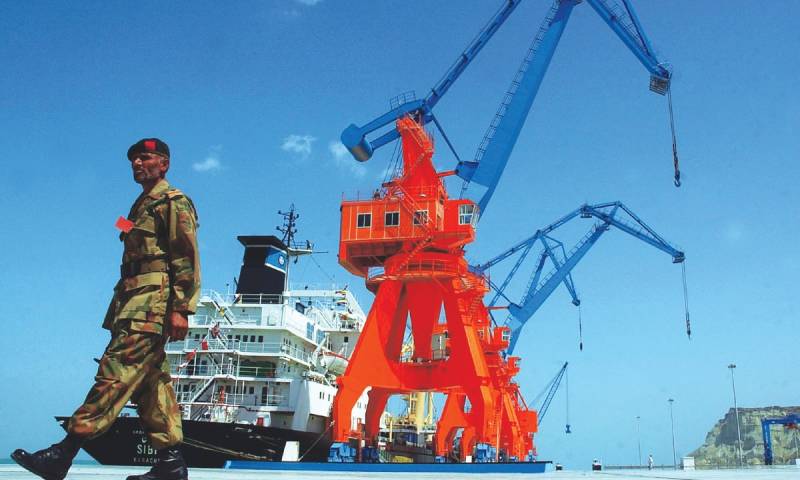The opportunities offered by the CPEC project are undeniable and manifest but can we ignore its socio-cultural impact? The influence of Eurocentric concepts on our society is evident today, which is a result of an era of colonialism and white supremacy. Globalisation has already resulted in the diffusion of cultures to some extent. The new Chinese rhetoric is the free trade and globalisation. Similarly, cultural friction due to Chinese influx in Pakistan might occur as a result of the CPEC Project.
We see that day by day the Chinese people are seen more often in malls, restaurants and other places. This is just the beginning of a grand cultural change.
Presently, English appears to be the dominant language when it comes to acquiring good jobs. One has to be proficient in this language in order to cope with the society, and we have already seen urdu losing its significance. Soon, the Chinese language would further lessen the value of Urdu. We, as students, are often told that we would have to be good at Chinese in order to communicate and reach higher status positions as new companies and firms would be opened as a result of the project. Premier Li Keqiang also made the promise to send 1000 teachers to Pakistan to teach the Chinese language in 2013 and today there are abundant Chinese teachers in Pakistan.
Chinese and Pakistani culture are utterly different when it comes to religion. China has the biggest irreligious population; while our culture has strict religious values, norms and mores. The CPEC routes will not only provide a means for the carrying of goods and other materials but also for the transfer of social customs, languages and beliefs among other things. People to people contact would rise. The Silk Road in the ancient world led to the transmission of Buddhism, Christianity, Manichaeism, and Islam. Buddhism itself reached China through the Silk Road. The travellers experienced different religions and then carried them back to their own native lands. Diverse societies were formed throughout Eurasia. The present era Silk Road is the revival of the ancient Silk Route. At the same time, the positive aspect of the collaborations could be the imminent transmission of knowledge and new innovations which is indubitably a source of progress and growth. Inter-cultural communication results in an increased commerce, technological growth and cooperation. Chinese have made phenomenal progress in the past few years. Hence, they stand as the finest example for us.
The ‘Shan masala’ advert showing a Chinese woman in Pakistani clothes bringing Biryani to a Pakistani home went viral. In the near future, we can anticipate the vice versa to happen as well. Earlier a photo showing a Pakistani woman marrying a Chinese man became a source of interest for many. Some of you might have taken it as a joke but that is a real possibility.
The major transmitter of culture is the media. The CPEC master plan revealed the plan to broadcast Chinese content on Pakistani televisions through Digital Television Terrestrial Multimedia Broadcasting (DTMB). It was even reported that these services would be extended to the mountainous areas of Pakistan where you still find people living the traditional life. For the past few years, Turkish and Indian drama series have been popular among people of almost all age groups. They are intelligibly exhibiting unethical values having the tendency to influence people especially the youth, but there is nobody to be held accountable for. Same could be the case in the context of CPEC. A Chinese actor has already made appearance in the upcoming film ‘chalay thay saath’. Likewise, there is much more to come.
China will be gaining a new business market in Pakistan. One of the driving reasons behind the Belt and Road initiative was the saturation in their own markets or the overproduction. China was determined to explore new markets in other countries. Chinese products have already made their reputation in the previous years and are likely to become dominant in the coming ones as there has been a free trade agreement between the two countries. This is a threat to the local markets and manufacturers. Markets might become even more flooded with inexpensive Chinese products as they already are. This will lead to the transmission of materialistic culture.
However, there is no harm in adopting valuable ethics. For instance, Chinese work ethics are much more desirable than ours. They strongly believe in the importance of hard work, dedication and commitment and this is one of the reasons for China’s fast economic growth. While, a number of people here have poor work ethics particularly a lack of commitment which hinders the country’s progress. Additionally, strong cooperation can ensure the success of the project. If not, Chinese and Pakistanis, in their effort to compete and excel against one another, could bring on undesirable competition.
We as a nation have to understand the fact that progress lies in adopting and preserving one’s own culture rather than falling prey to the influence of other cultural values which are contrary to that of theirs while picking only the beneficial practices. Otherwise, there is a threat to our centuries old preserved culture. We are the guardians and defenders of our own culture.






